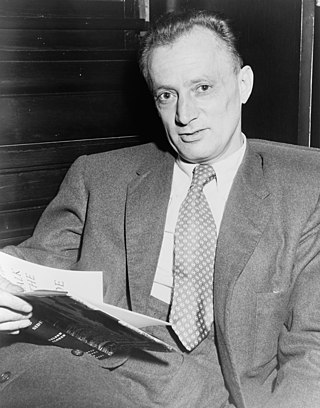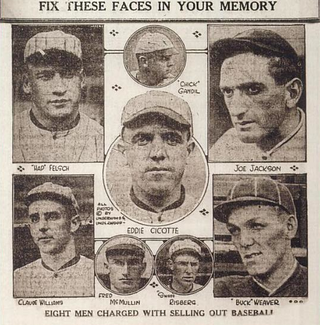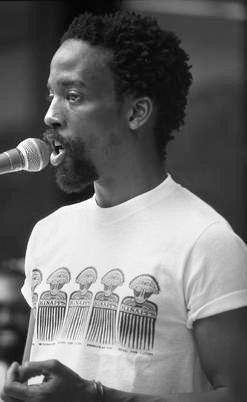
Chicago: City on the Make is a book-length essay by Nelson Algren published in 1951.

Chicago: City on the Make is a book-length essay by Nelson Algren published in 1951.
Initially greeted with scorn by critics and newspaper editors in the city of its gaze (The Chicago Daily News famously called it a "Case for Ra(n)t Control"), it is now widely regarded by scholars as a definitive prose portrait of the city of Chicago, although it has never rivaled the literary status of Carl Sandburg's 1916 poem "Chicago". Algren leans heavily on the imagery and themes developed by Sandburg, to whom Algren dedicated the book. Subsequent portraits of Chicago, such as Studs Terkel's 1985 Chicago, have likewise drawn heavily upon Algren's work.
In the 12,000-word lyrical essay, Algren summarizes 120 years of Chicago history as a tangle of hustlers, gangsters, and corrupt politicians, but he ultimately declares his love for the city with these famous lines from Chapter 2: "It's every man for himself in this hired air. / Yet once you've come to be part of this particular patch, you'll never love another. Like loving a woman with a broken nose, you may well find lovelier lovelies. But never a lovely so real." Algren locates the city's heart in the "nobodies nobody knows," the ginsoaks, stew bums, and shell-shocked veterans who lurk in the alleys and linger in the weedy wastes underneath the 'L' tracks. Unrivaled in its depiction of Chicago's downtrodden, the essay recounts the repeated ways Chicago sells out its dreams and disappoints its dreamers, including the 1919 Black Sox scandal, in which eight Chicago White Sox players were accused of accepting bribes to throw the world series. Indeed, Algren writes, the whole city has always been "a rigged ball game."
The University of Chicago Press issued a new edition of the essay upon its 50th anniversary in 2001, and it remains one of Chicago's most popular local books. Nostalgia for Chicago's colorful history may explain the essay's continued success. In a 2002 reassessment of the essay, University of Chicago scholar Jeff McMahon wrote, "Why does Algren's textual Chicago continue to resonate with Chicago readers today? In sentences that assess Algren's legacy as a Chicago writer — sentences in which Algren serves as subject, Chicago as object — one verb often recurs. As Mike Royko writes in 'Algren's Golden Pen,' Algren captures Chicago. From the discourse on this essay emerges the argument that the text contains some captured aspect of Chicago that still applies to the city today."

Saul Bellow was a Canadian–American writer. For his literary work, Bellow was awarded the Pulitzer Prize, the Nobel Prize for Literature, and the National Medal of Arts. He is the only writer to win the National Book Award for Fiction three times, and he received the National Book Foundation's lifetime Medal for Distinguished Contribution to American Letters in 1990.

Carl August Sandburg was an American poet, biographer, journalist, and editor. He won three Pulitzer Prizes: two for his poetry and one for his biography of Abraham Lincoln. During his lifetime, Sandburg was widely regarded as "a major figure in contemporary literature", especially for volumes of his collected verse, including Chicago Poems (1916), Cornhuskers (1918), and Smoke and Steel (1920). He enjoyed "unrivaled appeal as a poet in his day, perhaps because the breadth of his experiences connected him with so many strands of American life". When he died in 1967, President Lyndon B. Johnson observed that "Carl Sandburg was more than the voice of America, more than the poet of its strength and genius. He was America."

Simone Lucie Ernestine Marie Bertrand de Beauvoir was a French existentialist philosopher, writer, social theorist, and feminist activist. Though she did not consider herself a philosopher, nor was she considered one at the time of her death, she had a significant influence on both feminist existentialism and feminist theory.

Nelson Algren was an American writer. His 1949 novel The Man with the Golden Arm won the National Book Award and was adapted as the 1955 film of the same name.

The Black Sox Scandal was a Major League Baseball game-fixing scandal in which eight members of the Chicago White Sox were accused of throwing the 1919 World Series against the Cincinnati Reds in exchange for money from a gambling syndicate led by Arnold Rothstein. As a response, the National Baseball Commission was dissolved and Judge Kenesaw Mountain Landis was appointed to be the first Commissioner of Baseball, and given absolute control over the sport to restore its integrity.

The Federal Writers' Project (FWP) was a federal government project in the United States created to provide jobs for out-of-work writers during the Great Depression. It was part of the Works Progress Administration (WPA), a New Deal program. It was one of a group of New Deal arts programs known collectively as Federal Project Number One or Federal One.

Essex Hemphill was an openly gay American poet and activist. He is known for his contributions to the Washington, D.C. art scene in the 1980s, and for openly discussing the topics pertinent to the African-American gay community.
The Man with the Golden Arm is a novel by Nelson Algren, published by Doubleday in November 1949. One of the seminal novels of post-World War II American letters, The Man with the Golden Arm is widely considered Algren's greatest and most enduring work. It won the National Book Award in 1950.

Melissa Susan Bank was an American author. She published two books—The Wonder Spot, a volume of short stories, and The Girls' Guide to Hunting and Fishing—and won the 1993 Nelson Algren Award for short fiction. She taught at Stony Brook University.

Art Shay was an American photographer and writer.

Polonia Triangle, also known as the Polish Triangle, is located in West Town, in what had been the historical Polish Downtown area of Chicago. A single-tiered fountain made of black iron with a bowl about nine feet in diameter is installed at its center. Polonia Triangle derives its name from the Polish word Polonia, which means 'Polish diaspora'. Polonia Triangle was considered to be the center or town square of Chicago's Polish Downtown, the city's oldest and most prominent Polish settlement. In many ways it functioned as the capital of the American Polonia with the headquarters for almost every major Polish organization in the United States clustered within its vicinity.

Polish Downtown was Chicago's oldest and most prominent Polish settlement. Polish Downtown was the political, cultural and social capital of Poles in Chicago and of other Polish Americans throughout North America. Centered on Polonia Triangle at the intersection of Division, Ashland and Milwaukee Avenue, the headquarters for almost every major Polish organization in the United States was clustered within its vicinity, beginning with the Polish National Alliance to the Polish Daily News.
Nonconformity: Writing on Writing is a book-length essay by Nelson Algren, intended for publication in 1953 but released posthumously in 1996 by Seven Stories Press. Kurt Vonnegut called it, "A handbook for tough, truth-telling outsiders who are proud, as was Algren, to damn well stay that way."
Melissa Pritchard is an American short story writer, novelist, essayist, and journalist.

A classic is a book accepted as being exemplary or particularly noteworthy. What makes a book "classic" is a concern that has occurred to various authors ranging from Italo Calvino to Mark Twain and the related questions of "Why Read the Classics?" and "What Is a Classic?" have been essayed by authors from different genres and eras. The ability of a classic book to be reinterpreted, to seemingly be renewed in the interests of generations of readers succeeding its creation, is a theme that is seen in the writings of literary critics including Michael Dirda, Ezra Pound, and Sainte-Beuve. These books can be published as a collection or presented as a list, such as Harold Bloom's list of books that constitute the Western canon. Although the term is often associated with the Western canon, it can be applied to works of literature from all traditions, such as the Chinese classics or the Indian Vedas.

Chicago literature is writing, primarily by writers born or living in Chicago, that reflects the culture of the city.

Somebody in Boots is writer Nelson Algren's first novel, based on his personal experiences of living in Texas during the Great Depression. The novel was published by Vanguard Press in 1935. The title refers to someone with material well-being and authority, as poor folk and the powerless wore shoes or went barefoot. The bosses and police feared by the poor and downtrodden wear boots, which not only symbolize their power and relative affluence, but can be used as weapons against them.

If This Isn't Nice, What Is?: Advice to the Young is a 2013 collection of nine commencement speeches from Kurt Vonnegut, selected and introduced by longtime friend and author Dan Wakefield.
A list of the published work of Nelson Algren, American writer.

The Neon Wilderness (1947) is the first short-story collection by American writer Nelson Algren. Two of its stories had received an O. Henry Award. Algren received an award from the American Academy of Arts and Letters the same year.